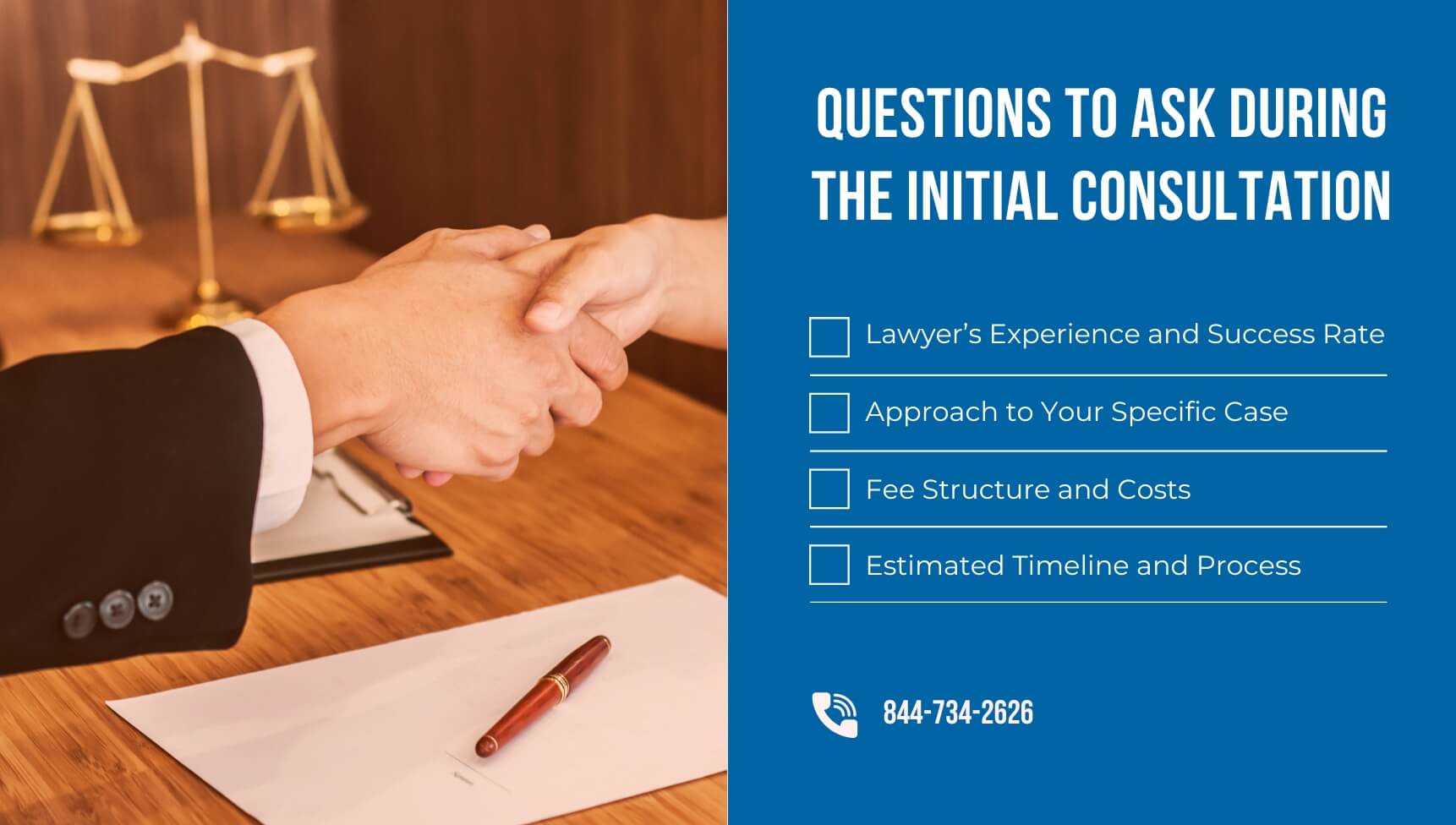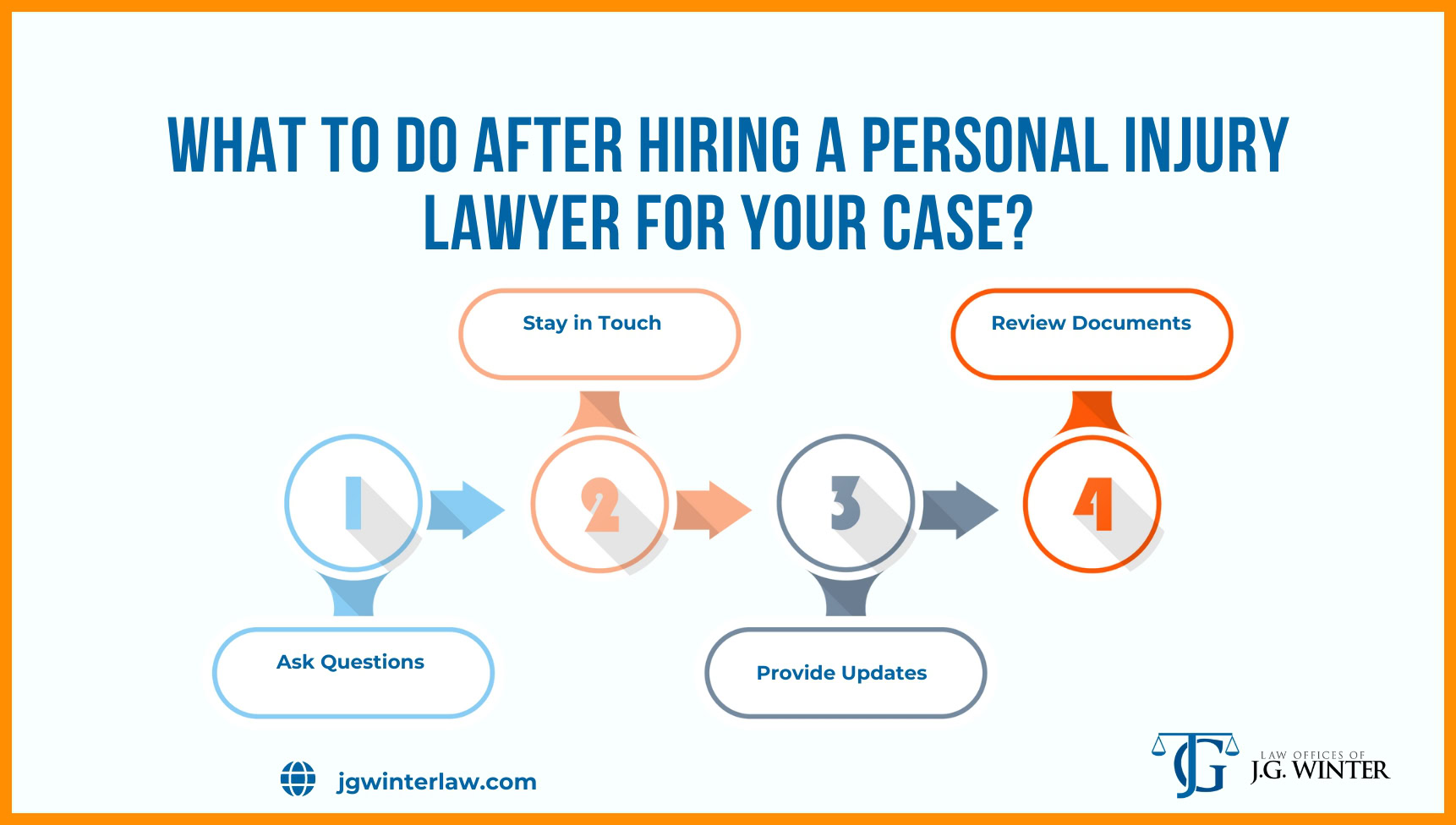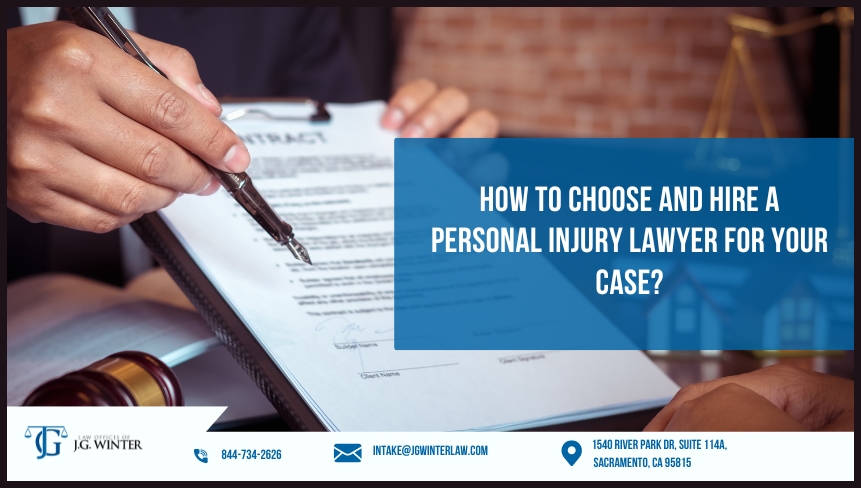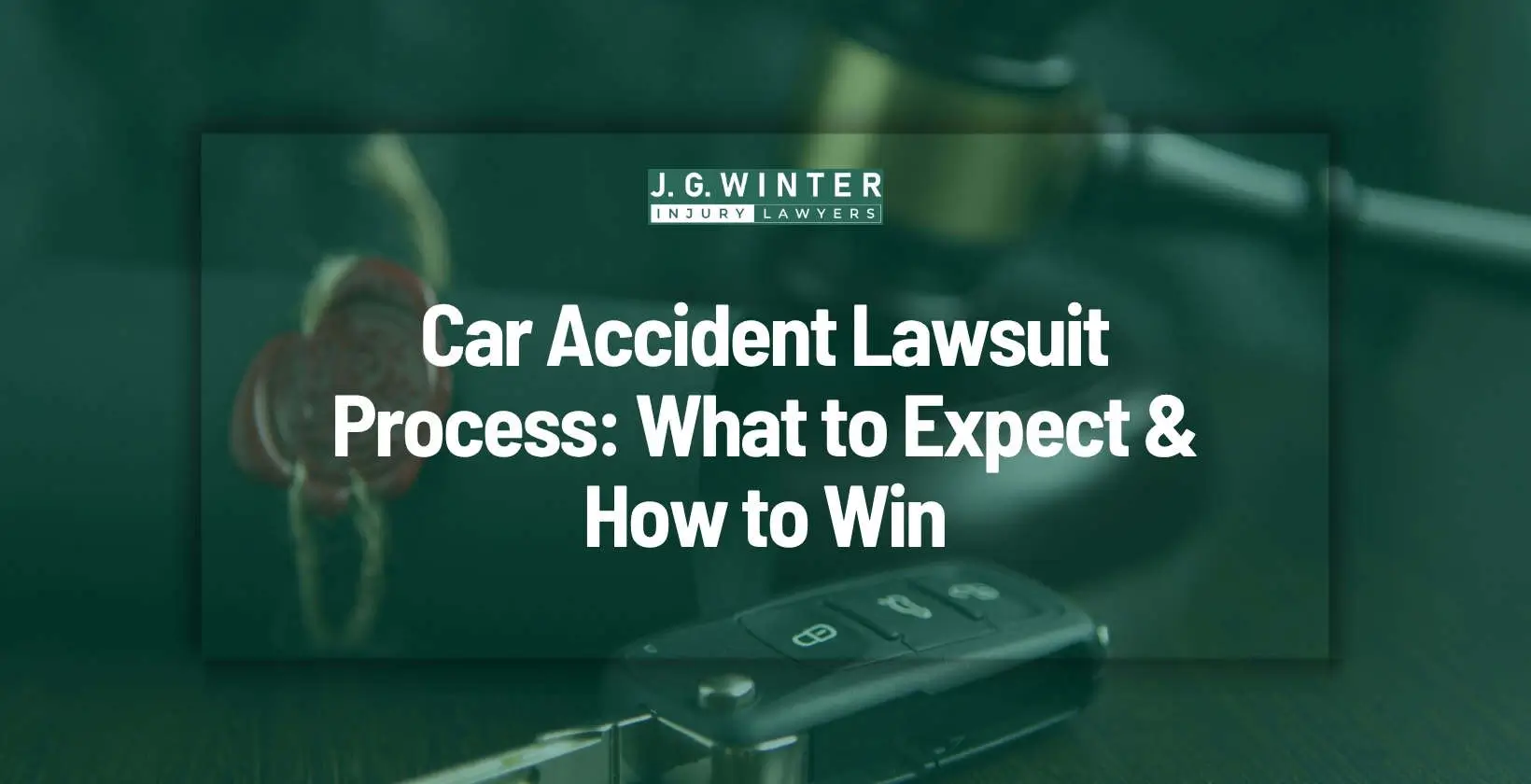Knowing how to choose and hire a personal injury lawyer for your case is crucial if you have been hurt by someone else’s actions. The lawyer you select can significantly affect the outcome, not just in terms of winning, but also in the amount of compensation you might receive. It’s about finding a skilled professional you trust to represent your interests effectively.
J.G Winter Law understands how a good lawyer can impact your case. Our personal injury attorneys ensure you stay confident and informed throughout your personal injury case. With the right legal partner, navigating the complexities of a personal injury claim becomes manageable.
Understanding the need for a personal injury lawyer
Sometimes, you might need clarification on whether you need a lawyer. However, there are certain situations where having a personal injury lawyer is essential to protect your rights and secure fair compensation.
- Severe injuries: If your injuries are serious, it can lead to more medical costs and potentially long-term care. A personal injury lawyer can help you receive compensation for these expenses.
- Disputed liability: If it’s unclear who is at fault or if the other party denies responsibility, a lawyer can help prove liability and protect your interests.
- Insurance company issues: Sometimes, insurance companies might deny your claim or offer a settlement that’s too low. A lawyer can negotiate with them on your behalf.
- Permanent disabilities: If the accident leaves you with long-lasting disabilities, a lawyer can help calculate the long-term impacts and fight for compensation that covers your future needs.
- Complex legal rules: In cases with complicated legal rules, like medical malpractice, a lawyer can help you navigate the complexities.
Research potential personal injury lawyers
Finding the right personal injury lawyer is vital for the success of your case. It’s more than just filing a lawsuit; it’s about understanding your rights, navigating the legal system, and ensuring you receive fair compensation.
Where can you find lawyers?
Looking for a personal injury lawyer can feel overwhelming. Start your search for a personal injury lawyer online, and lawyers’ websites for information and reviews. Personal referrals and legal association services can also guide you to skilled lawyers nearby.
- Online directories: Websites such as Avvo and Martindale-Hubbell provide comprehensive lists of lawyers. They offer insights through reviews and ratings of lawyers in the legal community.
- Referrals from friends or family: Personal recommendations are invaluable. If someone you trust had a good experience with a lawyer, it’s worth considering that lawyer for your case.
- Legal associations: Bar associations at the state and local levels offer referral services that connect you with personal injury lawyers.
Review qualifications and experience
Once you’ve identified potential lawyers, evaluating their qualifications and experience is your next step.
- Personal injury law specialization: Specialization is crucial because personal injury law is complex and varies greatly. A specialized personal injury lawyer has a deeper understanding of the laws and regulations that may affect your case.
- Success stories: A lawyer’s history of successful case outcomes strongly indicates their capability. Successful lawyers usually have testimonials or case studies showcasing their achievements.
- Experience with similar cases: A lawyer’s experience with similar cases can significantly influence your case’s outcome. It means they’re familiar with the specific challenges and legal nuances your case might present.
Evaluate a lawyer’s fit for your personal injury case
After you’ve found potential lawyers, the next step is making sure they’re the right fit for your personal injury case. A good fit goes beyond their expertise in law; it includes how they communicate with you, understand your case, and make you feel throughout the process.
Communication and comfort level
You need a personal injury attorney who explains legal terms and processes in a way you understand and who keeps you updated on your case’s progress. Moreover, feeling comfortable with your lawyer allows you to openly share details about your injury and concerns. It ensures they fully understand your situation and can advocate effectively.
Assessing reputation and client testimonials
Reviews and testimonials from past clients can provide valuable insights into a lawyer’s effectiveness and how they treat their clients. Look for feedback about their success in similar cases, professionalism, and client service. Positive reviews indicate a strong reputation in the legal community and among clients, suggesting they’re a reliable choice for your personal injury case.
Empathy and emotional support
A lawyer should understand the legal aspects of your case and support you emotionally. An empathetic lawyer recognizes the challenges you’re facing and shows genuine concern for your well-being. It makes a big difference, especially during tough times. The emotional support, combined with legal expertise, can help you feel more secure and supported as your case progresses.
Questions to ask during the initial consultation

The first meeting with a lawyer is a great chance to learn if they’re right for you. You must ask questions to understand their experience, how they plan to handle your case, what they charge, and how long things might take.
- Lawyer’s experience and success rate: Ask about the lawyer’s experience with personal injury cases, especially ones like yours. Find out how many cases they’ve won and what kind of settlements they’ve gotten for clients. It helps you see if they have the skills to handle your case well.
- Approach to your specific case: Every case is different. Ask how the lawyer plans to approach yours. What steps will they take? Do they see any challenges? Understanding their plan gives you insight into how they work and if they’re a good fit for you.
- Fee structure and costs: Many personal injury lawyers work on a contingency fee basis, meaning they only get paid if you win. But ask about other costs you might need to cover, like court fees or expenses for gathering evidence.
- Estimated timeline and process: Ask how long the lawyer think your case will take. While they might not be able to give you an exact timeline, they can offer an estimated range based on their experience.
Choosing the right personal injury lawyer for your case
After meeting with potential lawyers and gathering all the necessary information, it’s time to decide. Carefully consider each option to choose the best personal injury lawyer for your case.
Comparing your options
Take a close look at what each lawyer offers. Consider their experience, how well they understand your case, their plan for moving forward, and how they charge. Think about who made you feel the most confident and understood. It helps you see which lawyer stands out as the best choice for you.
Trusting your instincts
While facts and figures are important, don’t underestimate the value of your instincts. After all your research and meetings, how do you feel about your choices? Sometimes, your gut feeling can guide you to the lawyer who is the best fit for your needs. Trusting yourself is important in choosing the right lawyer to represent you in your personal injury case.
Finalize the agreement
Once you’ve chosen a lawyer, make your partnership official. It involves signing a retainer agreement and setting clear expectations.
Understand the retainer agreement
A retainer agreement is a document that outlines the details of your arrangement with your lawyer. You must read the agreement carefully before you sign it. It includes how the lawyer will be paid (like a contingency fee), what costs you might need to pay, and the scope of the work they’ll do for you. Make sure you understand everything in the agreement and ask questions if anything is unclear.
Clarify expectations
Understand how often you’ll communicate, how the lawyer will keep you updated on your case, and any specific steps they plan to take. You have to be clear on any costs or fees that are not covered by the retainer agreement. It helps prevent misunderstandings later on and ensure a smooth working relationship.
What to do after hiring a personal injury lawyer for your case?

After choosing a personal injury lawyer, you must ensure your case progresses smoothly. Give your lawyer all the details about your accident and injuries. Share everything, even if it seems small or unimportant. It includes how the accident happened, your injuries, medical treatments, and how your life has been affected. Being open and honest allows your lawyer to build a strong case and fight for the best outcome for you.
Besides, being active and working closely with your lawyer is important for the best outcome.
- Ask questions: If you’re unsure about something, ask. You must understand every part of your case.
- Stay in touch: Regular updates from your lawyer are key. Make sure you know how best to contact each other.
- Provide updates: If changes in your medical condition or other aspects of your life relate to the case, tell your lawyer.
- Review documents: Before submitting or signing any documents, review them or discuss them with your lawyer to ensure accuracy.
Red flags to watch while choosing a personal injury attorney
Picking the right personal injury attorney is crucial, but you must be aware of warning signs that might suggest an attorney isn’t the best fit for your case.
- Lack of communication: If an attorney doesn’t respond to your calls or emails, or doesn’t keep you updated on your case, it could be a sign of trouble. You need someone who will keep you informed every step of the way.
- Unrealistic promises: Be cautious of any attorney who promises you a specific outcome or a huge settlement without fully understanding your case. No attorney can guarantee a win or predict the exact amount you’ll receive. Those who make such promises might not be giving you the whole picture.
- High-pressure tactics: Your attorney should take the time to explain your options and give you the space to make decisions. It might not be in your best interest if you feel rushed into making choices, especially about settling your case early. An attorney pushing too hard for quick decisions might not be looking out for your best outcome.
Hire J.G. Winter Law as your personal injury attorney

Choosing J.G. Winter Law for your personal injury case means opting for top-notch legal representation. We prioritize a strong attorney-client relationship with clear communication, respect, and trust. With Attorney Jeremy Winter, you’ll find a dedicated advocate committed to protecting your rights and achieving the compensation you rightfully deserve. For committed legal assistance in your personal injury claim, don’t hesitate to contact us today.
FAQs on hiring personal injury lawyer
How do personal injury lawyers get paid?
Most personal injury lawyers work on a contingency fee basis, meaning they only get paid if you win your case. The fee is usually a percentage of the settlement or award you receive.
What percentage do most personal injury lawyers take?
Most personal injury lawyers take a contingency fee that ranges from 33.3% (or one-third) to 40% of the settlement or award received. The exact percentage can vary based on the case’s complexity and specific agreements between the lawyer and the client.
What should I look for in a personal injury attorney?
Look for an attorney with specific experience in personal injury law, a track record of success in similar cases, good communication skills, and someone who makes you feel comfortable. You can check their reputation through reviews and client testimonials.
Can I handle my personal injury claim on my own?
While you can handle a claim on your own an experienced attorney can help you navigate the complexities of the legal system and insurance negotiations for a better outcome.
How long do I have to file a personal injury lawsuit?
The time limit, or statute of limitations, to file a personal injury lawsuit varies by state. For instance, in California, the statute of limitations for most personal injury cases is two years from the date of the injury. You must consult an attorney as soon as possible to file your claim within the deadline.
What damages can I recover in a personal injury lawsuit?
You can recover economic damages like medical bills and lost wages, non-economic damages for pain and suffering, and sometimes punitive damages if the defendant’s conduct was particularly egregious.
How long does a personal injury case take to resolve?
The duration varies depending on the case’s complexity, the severity of injuries, the clarity of fault, and whether the case is settled or goes to trial. It can range from a few months to several years.




